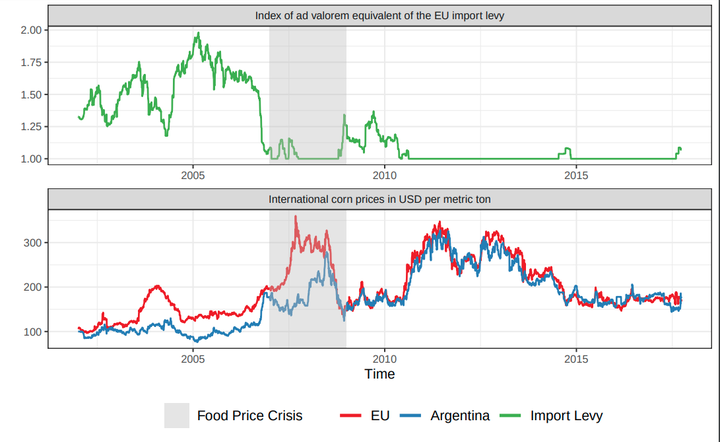
Abstract
The variable import levy for corn imports in the European Union aims to support European producers by insulating domestic prices from low international prices. Such price-insulating policies have been associated with an increase in global market volatility. Eliminating these distortions has been one of the key issues in international negotiations on agricultural trade liberalization, e.g., the commitment of WTO member states to follow the principle of tariffication as part of the Uruguay Round Agreement on Agriculture. Nevertheless, the Blair House Agreement effectively allowed the EU to maintain a variable import levy regime for grain imports, although the magnitude of this levy is substantially smaller than in the past. Notwithstanding that this policy has been a cornerstone of the EU’s Common Agricultural Policy, empirical evidence on the magnitude of its effects on price volatility is largely missing. This paper employs a multivariate asymmetric volatility model to assess these effects on domestic and foreign corn markets, using Argentina –~a large exporter of corn~– as an example. In line with the relevant theoretical literature, we find empirical evidence for the 2002–2017 period that the variable import levy reduced corn price volatility in the EU market, while significantly increasing volatility to the same extent in Argentina. In a distorted sense, the import levy of the EU has thus been a success, as its variable application rate has stabilized prices in the EU domestic market. However, our results show that this policy has merely shifted price volatility abroad since it has led to increases in price volatility in Argentina. A less distortionary policy to target the problems of agricultural price volatility should shift its focus away from direct price interventions. For instance, domestic policies that improve farmers' ability to cope with price-related risks would avoid the negative effects of domestic price stabilization in foreign countries.